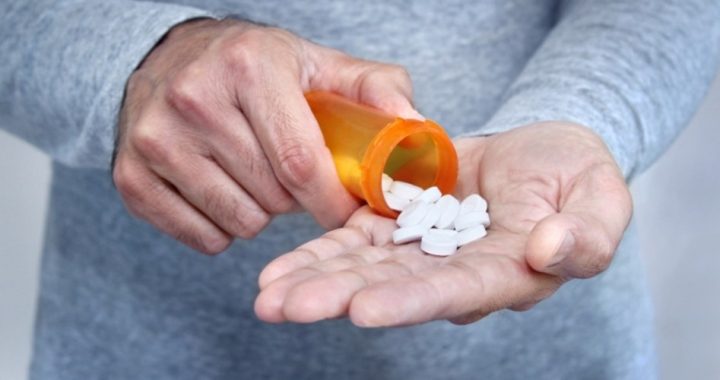
President Donald Trump’s recently released “Blueprint to Lower Drug Prices” is a “market-based” approach to the problem of high prescription-drug costs, Health and Human Services (HHS) Secretary Alex Azar claimed Monday.
“The American system works incredibly well in so many ways because we have a free market,” Azar, a former pharmaceutical-company executive, said in a speech. “But right now, we have a drug pricing system that is protected from market forces — that is set up to benefit the manufacturers and the middlemen, not the patients.”
The reason the drug-pricing system, and indeed the entire healthcare system, is insulated from market forces is precisely that the government interferes with the free market in innumerable ways, including mandates, regulations, and subsidies. A market-based solution to the problem, therefore, would simply get government out of the way.
When government officials say “market-based,” on the other hand, they usually mean further interventions that they hope will bend the market in the direction they favor, and the Trump administration is no different in that regard. Trump’s plan, while it may have some salutary effects, nevertheless consists largely of modifications to, but not the elimination of, existing regulations coupled with new requirements and prohibitions.
The centerpiece of the plan is a proposal to give Medicare Part D, a prescription-drug benefit program administered by private insurers, increased power to negotiate drug prices down. Although insurers already negotiate prices for many drugs — a process that Forbes’ Avik Roy says has made Part D “the most successful cost-control experiment in Medicare’s history” — they are currently prevented from doing so for certain protected classes of drugs. According to Azar, while private insurance plans get discounts of 20 to 30 percent on these drugs, Medicare Part D gets a paltry six percent. The administration intends to allow Part D plans to negotiate for these drugs the same way it does for others, which should save some money.
Trump also wants to merge Medicare Part B into Part D to realize even greater drug savings. Azar explained that Part B covers a drug as soon as it’s approved by the Food and Drug Administration (FDA) at “the standard price plus a six-percent markup.” Allowing negotiations on these drugs’ prices should save taxpayer dollars. Then again, should the government use its power to “negotiate” prices that are too low, it could retard the development of new drugs.
Azar said the administration further desires to “call out the manufacturers who may be abusing the rules that built our free market for drugs,” showing once again that he doesn’t really understand what a free market is. A free market doesn’t need government regulations to bring it about; it arises naturally in the course of human interaction. The only rules it requires are those that protect property rights.
Among the rules the administration thinks manufacturers are gaming are “FDA safety rules or commercial distribution restrictions” that pharmaceutical companies use “to block generic drug manufacturers from having access to samples of the branded drug” for testing, stated Azar. The FDA, he said, “is going to begin publicly identifying drug companies suspected of engaging in these abusive practices.” That’s all well and good, but getting rid of the regulations that are being abused would accomplish the same objective in a more thorough and market-based way.
According to Azar, the administration’s other proposals include cutting the prices Medicaid pays for drugs, forcing drug-benefit plans to employ fixed-price discounts instead of rebates to drug companies, prohibiting pharmacy benefit managers from being paid by drug companies, and requiring drug companies to disclose their list prices in direct-to-consumer advertising. Again, some of these might turn out to be beneficial to one degree or another, but they are hardly market-based.
Trump’s “blueprint represents the most comprehensive, serious, and thorough effort by any presidential administration to address the problem of high prescription drug prices,” wrote Roy. This may be true, but it is still an effort that relies on unconstitutional regulating, cajoling, and strong-arming that will only mask the underlying causes of the problem and create their own unintended consequences — consequences that future administrations will likely try to address in the same futile way.
Image: outline205 via iStock / Getty Images Plus



